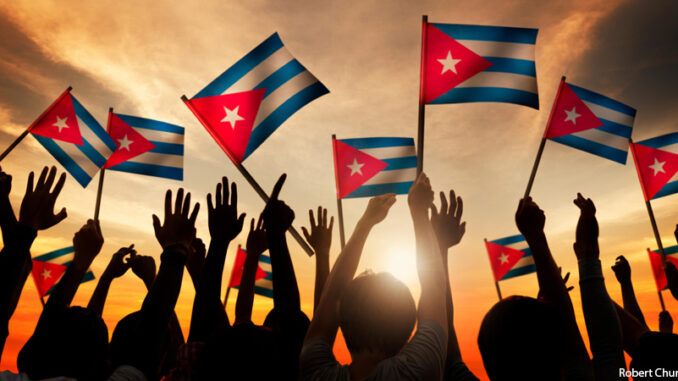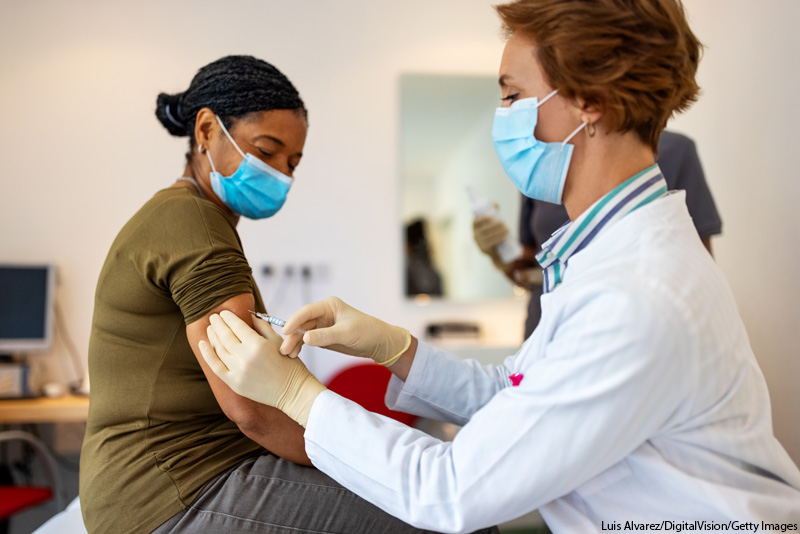
Boy Scouts Rescue Drowning Woman
On June 25, 2021, a heavy storm dropped at least six inches of rain on the city of Columbia, Missouri. The city’s creeks overflowed, and there was widespread flooding. Jay Dix Station Park was deeply submerged under six to seven feet of water. Two local boys–Dominic Viet, 15, and Joseph Diener, 16–were riding their bikes past the park when they witnessed an unidentified woman drowning in the floodwaters. The woman was wearing a bathing suit and had entered the water intentionally to swim. However, she quickly lost control of the situation. She held onto to a nearly submerged basketball hoop and screamed for help. Another passerby called 911 but the boys plunged into the water. Viet and Diener swam about ten yards against the current to lift her onto their shoulders and make it to the shore. By that time, she had been in the water for about thirty minutes. By the time the Columbia Fire Department and an ambulance arrived, the woman was already safe.
Viet and Diener are both Boy Scouts who have earned their swimming and lifesaving badges. This helped them know what to do to rescue the woman. For saving her life, the Columbia Fire Department will honor the boys with a “Citizen Life Safety Award.” But the assistant fire chief was also careful to warn the public about the danger of swimming into flood waters. Such water can contain sewage, chemicals, or debris, as well as dangerous currents. There is also the threat of electrocution.
What Do You Think? Given the situation and the risks involved, do you think you would have made the decision to help the drowning woman? Why or why not? Please be thoughtful with your answer.
South African Protests Turn Deadly
Two weeks ago, former South African President Jacob Zuma turned himself in to serve a 15-month jail sentence. Zuma had failed to appear in court for several charges of bribery and fraud. Zuma is accused of allowing 3 businessmen close to him to influence important governmental policies. He was ousted from power in 2018, after 9 years in office.
Zuma was also viewed as a liberation hero, and even spent a decade in prison alongside former President Nelson Mandela. When he turned himself in, the public responded with widespread protests that turned deadly. While the protests began for political reasons, they quickly escalated into violence that wasn’t linked to political motive. So far, over 200 people have been killed and more than 2,500 arrested. Protestors have also damaged or destroyed shops, malls, factories, and warehouses. So far, police have responded with rubber bullets, but the military is also now being used to maintain order. Up to 25,000 soldiers have already been deployed. In some places, thousands of residents have banded together to clean up streets and repair some of the damage.
The protests are also jeopardizing the country’s COVID-19 response because several vaccination sites have been forced to close down. South Africa is currently facing soaring infection rates, with hospital beds and oxygen supplies running low. And only about 2.5 percent of the country is fully vaccinated, so infection and death rates are expected to continue to climb.
What Do You Think? Government-mandated lockdowns due to COVID-19 have also plunged South Africa into its deepest economic recession in history. What role do you think this has played in the protests and violence?
Vaccine Incentives: Success or Failure?
To raise COVID-19 vaccination rates, leaders in different states tried all sorts of incentive programs, offering citizens everything from gift cards to free tickets to state fairs to help encourage them to “roll up their sleeves.” Ohio’s Vax-a-Million incentive even entered every vaccinated Ohio adult into a lottery to win one million dollars (vaccinated teenagers were entered into a drawing for a free college education at any public Ohio university). But did these efforts work?
A recent study by researchers at the Boston University School of Medicine says no. While Ohio did see an uptick in vaccination rates after announcing the Vax-a-Million program, the increases were about the same as they were in other states that didn’t have the program around this same time. The researchers think that this is a result of children aged 12 to 15 becoming eligible to receive the vaccine, not because of any lottery.
But Ohio Governor Mike DeWine disagrees with the findings. According to his office, in the week after the Vax-a-Million announcement, Ohio saw a 44 percent increase in vaccinations, including among groups that had previously been eligible to receive the shot. The week after, there was a 15 percent increase across all groups. Up until the announcement, Ohio’s vaccination rates had been declining. The governor’s office also points out that the amount of nationwide hype surrounding the Vax-a-Million program generated about $50 million-worth of advertising, far outweighing the cost of the lottery.
What Do You Think? Based on what you’ve read above, do you agree or disagree with Governor DeWine that the Vax-a-Million program was a success? Explain.
Why are Cubans Protesting?
The COVID-19 crisis and U.S. imposed economic sanctions have caused Cuba to fall into an unprecedented economic crisis. Cuba’s economy shrank 11 percent during the pandemic. At the same time, imports in 2020 were down 30 percent from the previous year. This limits Cuba’s access to goods, such as food, from overseas. This is a real problem for a nation that imports more than 70 to 80 percent of its food.
Some Cubans have gone up to twelve days without power, while others have faced long lines for basic goods. As a result of these conditions, widespread protests began on July 11, 2021 . People are demanding access to basic needs such as food, vaccines, and medicine. Currently, more than 100 people have been arrested or are missing, and one person has been killed in clashes with police.
The Cuban government has tried to address the economic tensions. It has lifted restrictions and taxes on travelers bringing essential items such as food, medicine, and hygiene products into the country for the next year. But Cuban President Miguel Diaz-Canel has ordered the police and military to crack down on the protestors. This crackdown has included an internet blackout that prevents Cubans from sharing photos of the demonstrations. Here in the United States, protestors in Florida, which has a large Cuban population, are demanding that the U.S. act in support of the Cuban protests.

